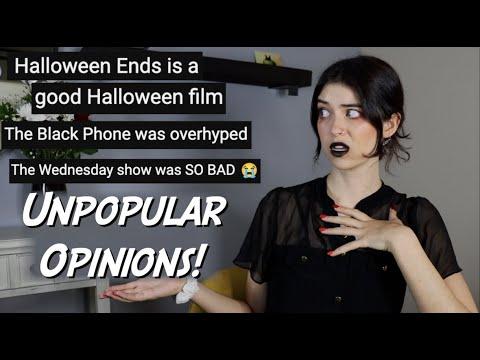In the ever-evolving landscape of cinema, the power of marketing and media buzz has never been more pronounced. As studios and filmmakers vie for audience attention, the phenomenon of overhyping films has become a double-edged sword. While generating excitement and anticipation can drive box office success, it also raises the question: does this heightened expectation alter how audiences perceive a film’s quality? This article delves into the intricate relationship between promotional hype and viewer satisfaction, exploring whether the soaring promises set by marketing campaigns ultimately enhance or hinder the cinematic experience. Through an analytical lens, we will examine case studies, audience reactions, and industry insights to uncover the true impact of overhyped films on public perception.
Impact of Marketing Strategies on Audience Expectations
In the world of cinema, marketing strategies wield significant power in shaping audience expectations. When a film is aggressively marketed, often through high-energy trailers and pervasive promotional campaigns, it can create a sense of anticipation that might not align with the actual content. This overhyping can lead to a discrepancy between what the audience expects and what they experience, potentially skewing their perception of the film’s quality. For instance, a movie that is marketed as a groundbreaking masterpiece might be judged more harshly if it fails to meet those lofty expectations, whereas a film with more subdued marketing could be pleasantly surprising.
- Expectation vs. Reality: Audiences may feel let down if the hype doesn’t match the film’s substance.
- Critical Reception: Overhyping can also influence critics, who may scrutinize the film more intensely.
- Word of Mouth: Disappointed viewers might spread negative feedback, impacting the film’s reputation.
Ultimately, the balance between effective promotion and realistic portrayal is crucial. While buzz can drive initial viewership, maintaining integrity in marketing ensures that audience expectations are met, preserving both the film’s reception and its lasting impact.

Psychological Effects of Hype on Viewer Experience
When a film is heavily promoted, audiences often enter theaters with heightened expectations, which can significantly impact their perception of the movie’s quality. This phenomenon, rooted in cognitive psychology, suggests that anticipation can skew judgment. Viewers might find themselves more critical of the film’s shortcomings because the reality doesn’t match the inflated promises. Conversely, some may overlook flaws due to a desire to align their opinions with the prevailing enthusiasm.
- Cognitive Dissonance: When the film doesn’t meet the anticipated standards, viewers experience discomfort and may rationalize their disappointment, sometimes even exaggerating negatives.
- Bandwagon Effect: The urge to conform can lead audiences to adopt popular opinions, amplifying the hype’s impact on perceived quality.
- Expectation Bias: Preconceived notions can alter how scenes are interpreted, potentially overshadowing the film’s authentic merits.
The interplay of these psychological factors demonstrates that overhyping not only shapes initial impressions but can also influence long-term perceptions of a film’s artistic and entertainment value.

Analyzing the Discrepancy Between Anticipation and Reality
The divergence between what audiences expect and what they experience when watching a film can be stark, often fueled by the intense marketing and media buzz that precedes a release. Overhyping can set a high bar, creating an idealized version of the film in the minds of viewers. This inflated expectation can lead to a sense of disappointment when the actual film doesn’t align with the constructed narrative. Consider how trailers, interviews, and promotional events craft a vision that might not reflect the true essence of the film. This disparity can skew perception, leading audiences to focus on unmet expectations rather than the film’s intrinsic qualities.
Several factors contribute to this phenomenon:
- Marketing Strategies: Intense promotional efforts can create a narrative that overshadows the film itself.
- Social Media Influence: Viral trends and discussions can amplify expectations beyond reasonable limits.
- Critical Reviews: Pre-release reviews often shape audience anticipation, sometimes prematurely elevating a film’s status.
Understanding these elements is crucial for filmmakers and marketers to balance promotion with realistic audience expectations, ensuring the film’s reception aligns more closely with its intended impact.

Strategic Recommendations for Balanced Film Promotion
Achieving a harmonious promotion strategy requires a blend of subtlety and excitement. Understanding the target audience is paramount. Tailor promotional materials to resonate with specific demographics, ensuring that the film’s essence is conveyed without overwhelming potential viewers. Avoid saturating the market with excessive trailers or teasers that might inadvertently reveal critical plot points.
- Limit Exposure: Opt for strategic release of content that sparks curiosity rather than divulging the entire narrative.
- Authentic Engagement: Encourage genuine interactions on social media platforms, allowing audiences to express anticipation organically.
- Collaborative Partnerships: Work with influencers and media outlets to share insights and behind-the-scenes content, providing a more nuanced view of the film.
By maintaining a balanced approach, filmmakers can cultivate an authentic buzz that enhances the film’s reception, fostering an environment where audiences feel intrigued rather than overwhelmed.

